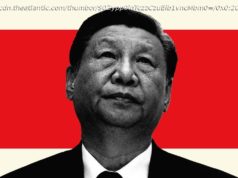President praises family for safeguarding ‘Chinese territory’ over the decades
Chinese President Xi Jinping has underscored his country’s claim to a disputed area on the border with India, with state media publishing a letter from Xi to a Tibetan family asking them to help safeguard the zone.
Xi’s letter was a rare response to the flood of correspondence from the public to the Chinese leader, and presidential replies are seen as a window on the priorities of their writer.
The Tibetan family – comprising a father and his two daughters – wrote to Xi about their community and Xi replied on Saturday, Xinhua reported on Sunday.
From 1979 to 1996, the family of herders were the only inhabitants of the Himalayan village of Yumai in Lhunze county, which covers 1,976 square kilometres, according to Chinese records.
Red-letter days: top tips for getting a written response from a Chinese leader
The community has since grown to 32 residents but remains on the front line of China and India’s conflicting territorial claims.
The letter comes two months after the end of a military stand-off between China and India on the Doklam Plateau border area.
While not referring to India directly, Xi praised the family’s decades-long efforts to “protect the Chinese territory”, the report said.
“Without peace in the territory, there will be no peace for millions of families,” Xinhua quoted Xi’s letter as saying. “For every blade of grass and tree on the motherland’s border, we will safeguard it well.”
1,000 Chinese soldiers reportedly still in Doklam a month after border stand-off ended
He urged the family to take inspiration from a Tibetan wild flower and continue to defend the “sacred homeland”.
Without elaborating, Xinhua said the two daughters, Zhoigar and Yangzom, wrote to Xi about changes in Yumai.
In 2015, Chinese National Geography reported that the Tibetan family’s residence there had helped China maintain control of the territory.
“Yumai would be occupied by India already if the family had decided to leave,” the village’s head was quoted as saying.






